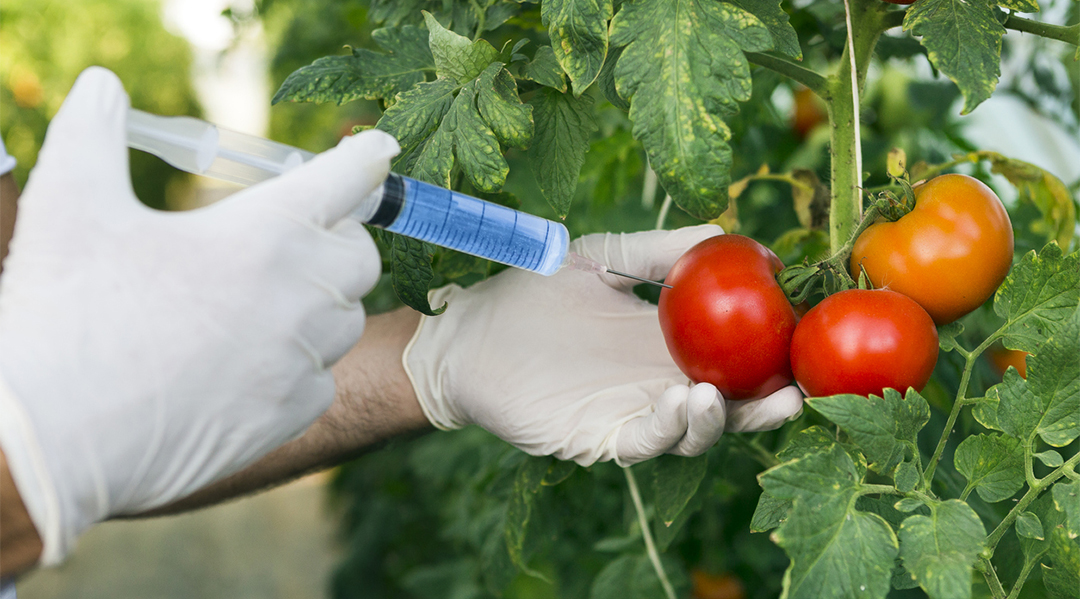GMO Testing in Papaya (PRSV-Resistant Event)
Genetically modified organisms (GMOs) have become a critical component of modern agriculture. Their potential to enhance crop resilience, productivity, and sustainability is well-documented. One such example is the development of Papaya ringspot virus-resistant (PRSV-Resistant Event) papaya, which has been widely adopted across various regions for its ability to withstand one of the most destructive viruses affecting papaya crops.
GMO testing in Papaya (PRSV-Resistant Event) is crucial for ensuring the accuracy and integrity of genetically modified organisms. This process involves a series of rigorous tests designed to verify that the introduced genetic material aligns with the intended modifications. For PRSV-resistant papayas, this means confirming the insertion of the desired gene responsible for resistance against Papaya ringspot virus. The testing ensures compliance with international standards and regulations while also validating the efficacy of the GMO.
The process typically begins with a thorough examination of the genetic material using advanced molecular biology techniques. These tests may include polymerase chain reaction (PCR) analysis, restriction enzyme digestion, Southern blotting, or next-generation sequencing to identify and confirm the presence of the target gene. Following this, in vivo and in vitro studies are conducted to assess the expressed protein's functionality in providing resistance against PRSV.
The significance of GMO testing extends beyond mere compliance; it plays a pivotal role in ensuring consumer safety and trust. Consumers expect genetically modified products to be safe, effective, and ethically produced. By adhering to strict testing protocols, laboratories can provide reassurance that the PRSV-resistant papayas meet these expectations.
Additionally, GMO testing contributes to the broader goal of sustainable agriculture by offering a means to improve crop resilience against viruses like PRSV. This not only benefits farmers but also helps in maintaining biodiversity and reducing reliance on chemical pesticides.
Why It Matters
- Compliance with Regulations: Ensures that the GMOs meet all regulatory requirements set by authorities such as the U.S. Food and Drug Administration (FDA) or European Food Safety Authority (EFSA).
- Consumer Confidence: Helps maintain public trust in genetically modified foods, which is crucial for market acceptance.
- Ethical Considerations: Ensures that the modifications do not introduce unintended risks to human health or the environment.
GMO testing also supports research and development efforts by providing detailed insights into the stability and performance of modified organisms. This information is invaluable for further improvements in crop resilience, yield, and overall agricultural efficiency.
Quality and Reliability Assurance
Rigorous quality assurance measures are essential for GMO testing, especially when dealing with genetically engineered crops like PRSV-resistant papaya. Laboratories must adhere to stringent protocols that ensure accuracy, precision, and reproducibility of test results.
- Standard Operating Procedures (SOPs): SOPs provide detailed instructions on specimen preparation, sample collection, and testing procedures. These documents are critical for maintaining consistency across different batches and personnel.
- Calibration of Instruments: Regular calibration ensures that laboratory instruments operate within acceptable tolerances, minimizing the risk of erroneous results.
- Data Validation: Data validation processes involve multiple checks to ensure the integrity and accuracy of test data. This includes cross-referencing results with historical data and using statistical methods to identify outliers or anomalies.
In addition, laboratories must maintain a robust quality management system (QMS) that complies with international standards such as ISO 17025 for testing and calibration laboratories. Compliance with these standards ensures that the laboratory can consistently deliver reliable test results.
The use of advanced technologies like next-generation sequencing (NGS) and quantitative PCR (qPCR) further enhances the reliability of GMO tests. These tools provide precise measurements and detailed insights into genetic modifications, contributing to the overall accuracy of the testing process.
Competitive Advantage and Market Impact
- Innovation: Early adoption of advanced GMO testing technologies provides a competitive edge by enabling faster product development and market entry.
- Sustainability: By offering resilient crops like PRSV-resistant papaya, farmers can reduce the need for chemical interventions, contributing to more sustainable agricultural practices.
The ability to conduct accurate and reliable GMO testing also enhances a laboratory's reputation in the industry. This reputation is crucial when it comes to securing contracts with major food producers and distributors who demand stringent quality standards.
Moreover, GMO testing supports compliance with international trade agreements that govern genetically modified organisms. By ensuring that products meet these requirements, laboratories can facilitate smoother international trade and reduce potential barriers to market entry.
The success of PRSV-resistant papaya in the global market underscores the importance of rigorous GMO testing. It demonstrates how advanced genetic modifications can address real-world challenges, such as viral diseases, while also fostering confidence among consumers and stakeholders.





